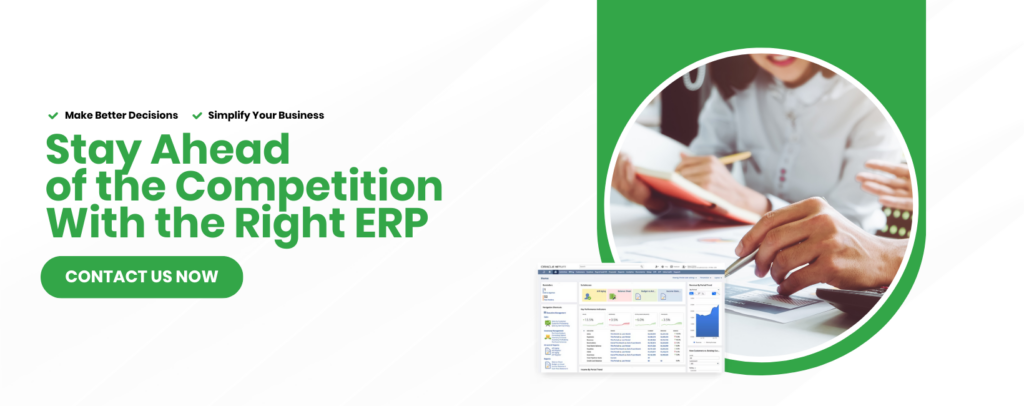Best ERP For Manufacturing
Best ERP For Manufacturing - An ERP, or enterprise resource planning software, is a tool that many enterprise organizations use to manage day-to-day operations for their business. These activities often include accounting, procurement, project management, risk mitigation and compliance, as well as supply chain operations. Complete suites of ERP software may also include performance management software, a tool that helps plan, budget, predict, and analyze an enterprise business’s financial performance.
When an organization gets to a certain size, particularly when they reach enterprise level, it can be very difficult to independently manage and review all of the business processes that go into making the business successful, such as accounting, sales, procurement and project management, reporting, and more. An ERP exists to help enterprise-level organizations bring all of those systems together in one software and reduce administrative strain and time spent resolving issues. ERPs are used in all industries, including manufacturing.
When searching for the best ERP for manufacturing, it’s important to keep your business’s needs and goals in mind. For businesses looking for an all-in-one solution to human resources, project management, accounting, financial reporting, and more, Fishbowl ERP may not be the best choice. Fishbowl manufacturing software is primarily known as an inventory management software that happens to contain some of the same modules that an ERP would have – it is not built to primarily function as an ERP. That is why clients searching for an inventory management system in addition to the several other manufacturing ERP features offered may struggle to scale with Fishbowl and use it long-term.
The manufacturing process in ERP should allow manufacturing leaders to follow a project from quote to cash, all within the same platform. With goVirtualOffice and Netsuite, that manufacturing software system looks like a CRM, Product Data Management, Order Management, Planning and Scheduling, Production Control, Quality Control, Supply Chain Management, and Shop Floor Control, all in one.
The best manufacturing software is going to be easy to use and implement, intuitive, user-friendly, and easily scalable. It should also be able to truly manage every aspect of running a manufacturing business from start to finish. That means the best manufacturing ERP should handle every interaction from the initial quote to the final invoice in the same software. Centralizing business processes in this way can cut down costs and improve efficiency.
In a study by SL Associates, wholesale distribution companies reported many improvements as a result of implementing an ERP software, including 75-90% reduced time to close books, 50-80% improved production, and 10-25% improved staff utilization.
Level up your Manufacturing Company’s Processes
Meet your goals, and assuage your problem points!
MRP Software
An MRP software may be considered the direct ancestor of an ERP, especially when it comes to manufacturing. An MRP is a materials requirement planning software that identifies necessary materials, estimates quantities, determines timelines to identify when materials will be required to fit the production schedule, manages delivery timing, and more. This kind of software felt like a cheat code to business at the time of its invention and removed much of the guesswork from materials planning in manufacturing. For many, an MRP may be the first manufacturing software for small business. However, many businesses quickly outgrow the sole module of materials requirement planning and soon need the other modules of finance and accounting that the best ERP for small manufacturing businesses contains.
The primary functions of an MRP software are to create the bill of materials (BOM) for a project, to identify the number of units necessary to meet the demand for the product, and to determine the parts and quantities required to manufacture the product. It also produces a timeline, including when parts should be ordered. The best ERP for manufacturing industry organizations will also contain all of the necessary components of an ERP. For manufacturing companies searching for an all-in-one solution, an MRP will be lacking the necessary modules of accounting, finance, human resources, risk mitigation and compliance, and potentially more.
The cost of an ERP system for small businesses is dependent on a number of factors. ERP systems are created to improve efficiency and revenue while reducing costs. A well-chosen and properly implemented ERP system should save a business money and enable it to push past plateaus that would not have been possible before system use. The same study by SL Associates also found that wholesale distribution companies reduced between 60% and 80% of their obsolete inventory costs and improved 45%-75% of their order processing.
The use of an ERP system in manufacturing should increase revenue and decrease costs. This is due to the software finding existing inefficiencies and suggesting methods to correct them. While an MRP might suggest a timeline for a project’s manufacturing, an ERP will suggest a timeline for the entire project, including processes outside of the manufacturing directly, such as billing and invoicing.
The Right ERP for the Manufacturing Industry
The best ERP for manufacturing industry companies is one that provides all the technical assistance of an MRP with all of the administrative features necessary to run a business smoothly. The manufacturing industry is more than machines, it’s people too. The right ERP for the manufacturing industry should take its people into account and give them the tools that they need to manage every aspect of the manufacturing process, including human elements such as human resources, compliance and risk mitigation, time tracking, and more.
Manufacturing and distribution ERP systems should be able to track project workflows from start to finish, automate whenever able, and provide administrators with all the tools they need to track employee time, send and process invoices, pull necessary reports, and more.
Manufacturing software needs to be able to track multiple parts. In many ways, an ERP for manufacturing industry companies should also function in the same way as a supply chain management software would. Projects should be able to be tracked through every phase from beginning to end, and all information should be available to anyone who needs it at the very moment they need it. When searching for an ERP for manufacturing, it’s important to know what sort of solution is necessary. Many small businesses that are struggling with processes start with an MRP but find it difficult to continue to use as they scale.
This is also one of the largest reasons that clients who use inventory management systems find themselves in need of an upgrade. As their business grows, their other systems, such as finance and accounting, need assistance that an ERP over an MRP would provide.
It can be difficult to select an ERP system that is built specifically to handle and overcome the challenges faced by the manufacturing industry. goVirtualOffice is a team with years of ERP experience to help manufacturing companies choose the best solution for them. Companies searching for an ERP should search for a solution that they believe fits their needs, or they can connect with a team of experts to find the best software available for them.
Teams should connect for an initial call to learn about the manufacturing company’s needs, its goals, and some of the challenges they face regularly. After that, the team can work together proactively to determine what steps can be taken and what features are necessary to level up the manufacturing company’s processes, meet their goals, and assuage their problem points.
Best ERP For Small Business
The best ERP for small distribution businesses should be one that can handle all of their current processes and grow with them as they scale their business. ERP software for small businesses can be especially helpful as small businesses are usually made of very small teams that do very big jobs. The effectiveness of ERP can help small business owners accomplish more work with less effort, increasing productivity and decreasing labor costs.
The best ERP for small businesses and the best ERP for startups are going to increase revenue and decrease costs overall, even if there is an upfront cost of purchasing the ERP software.
Manufacturers of every size can make use of manufacturing ERP software. Small businesses can particularly benefit from ERP software because of the automation and workflow streamlining. An ERP software also saves small businesses from having to use multiple tools to accomplish and automate different tasks.
An ERP could contain a CRM, client services system, time and expense tracking system, billing system, finance and accounting system, and more. In small businesses, most of those processes are built and maintained by using different or separate tools or by keeping track of all of them by hand. That can be a difficult system to maintain and is not scalable for the growth of the business. This could be especially true in a small retail business like a boutique or home goods store. An ERP for small retail businesses would provide them with all of the tools that they need to run and grow their business in one place.
Choosing an ERP for a small business from the beginning would also prevent the business owner or managing party from being split between multiple different tools and then being forced to upgrade in a period of growth.
Businesses of all sizes and in multiple industries may find it helpful to partner with a team with over 15 years of ERP experience, such as goVirtualOffice. With all of the ERP offerings on the market, it can take a lot of administrative time to do research on multiple softwares, set meetings with many sales reps, experience multiple different demonstrations, and be overwhelmed with options.
With goVirtualOffice, administrators can meet with one consultant or one team and work together to find the best available solution for their business without the extra work of wading through multiple options.

If you found the above content interesting, be sure to watch our video on:
Hit that play button and immerse yourself in a wealth of knowledge that can drive meaningful growth. Don't forget to subscribe for more enlightening content that equips you with the tools to thrive in today's data-driven business landscape. Your journey to maximizing profitability and item management excellence starts here!

)





